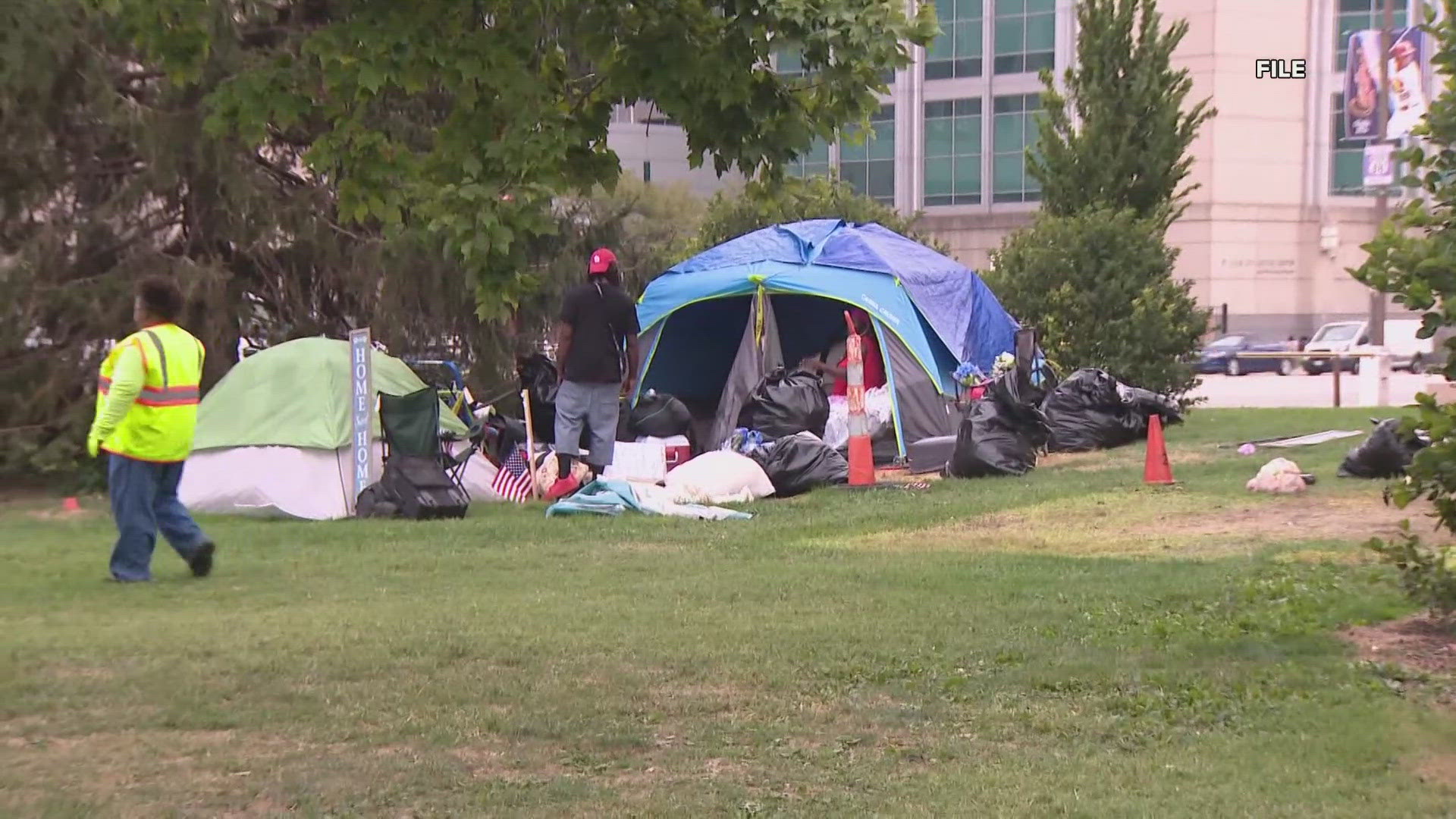ST. LOUIS — On Friday, the Supreme Court upheld a law that criminalizes homeless encampments on public property, overturning a lower court's ruling that said bans were cruel and unusual punishment.
The ruling allows cities to arrest and fine people without homes for sleeping outside in public places. It gives local and state governments a free hand in confronting a national homelessness crisis.
"First, let me be clear: just because the Supreme Court has ruled that municipalities have the ability to criminalize people who are unhoused, that does not mean that the city of St. Louis will move forward and criminalize our unhoused population," said Board of Aldermen President Megan Green.
5 On Your Side heard reactions from city leaders and local homeless shelters about what this means for St. Louis.
"Our unhoused community needs housing, they need resources, they need support, they don't need to be ticketed, and fined and put in a criminal justice system that they cannot get themselves out of," Green said.
"We've seen that when people can't pay fines and then are incarcerated for it, it turns into essentially a modern-day debtor's prison," Board of Aldermen Bret Narayan said.
It was not a welcome decision for those in St. Louis who try to help people experiencing homelessness daily.
Reverend Ray Redlich, the Vice President of New Life Evangelistic Center, said he's disappointed in the Supreme Court ruling as his work with the homeless is primarily outreach.
"We go to these encampments around the St. Louis area; I see the dire need; the people have to have a place to sleep and a way to live. And right now, with the extreme shortage of shelters and housing, this, the encampments are sometimes the only thing that we're somebody could safely exist and resort to," said Rev. Redlich.
Rev. Redlich said he's worried about the impact this ruling could have on St. Louis.
"What this ruling would amount to is they're being arrested for living," he said.
But Green assures that won't happen.
"I want to make it clear that our policies in the city of St. Louis will not change, and we will not be criminalizing folks who are unhoused," said Green.
Rev. Redlich said he would like to reach a compromise in which people can live in encampments but still have to follow certain rules.
"We need more shelters, and therefore, there wouldn't be as many people; if we had more available shelters, there wouldn't be as many people sleeping in encampments," said Redlich.
Deb Cottin, Chief Development Officer with Peter & Paul Community Services, has a solution.
The nonprofit is working to address homelessness in a significant way. Its new shelter location in North St. Louis promises to be the largest homeless services space in the city. It will include 100 shelter beds and provide other services.
"We purchased the Community Campus in April. Then, we took over operations in May. In July, we will move in our first clients. And we're super excited about that. And then we're working with other nonprofits here in St. Louis to have partners that will be in the building with their own programs," Cottin said.
The new Peter & Paul Community Campus will open its doors on July 14 with 60 clients, and then more programs will be added. The organization says this new location will nearly double the number of clients it currently houses in Soulard.
"We believe that when we finish with the build-out of this property of the Community Campus within the next four or five years, this will be the largest single-site of homeless services, transitional housing services, and affordable housing all in one site in St. Louis," said Cottin.
The 4.5-acre site was the Little Sisters of the Poor nursing home complex until 2018. The site will now be known as the Peter & Paul Community Campus at 3225 N. Florissant Ave. at Palm Street.
Cottin said the complex's 188,000-square-foot facility includes an eight-story tower, a commercial kitchen and dining room, a 15-unit apartment building, a 26-room convent, a large chapel, multiple secured parking lots, and private green space.
"Criminalizing poverty and criminalizing homelessness, it's not the solution. We are working on the solution. I choose to believe that we're not going down the road of putting people in jail or writing tickets that they will never be able to pay. With all the momentum we have here in St. Louis, we're going to go in a much better direction, one we can all be more proud of. And this campus here, this Community Campus, is a big piece of that," said Cottin.

